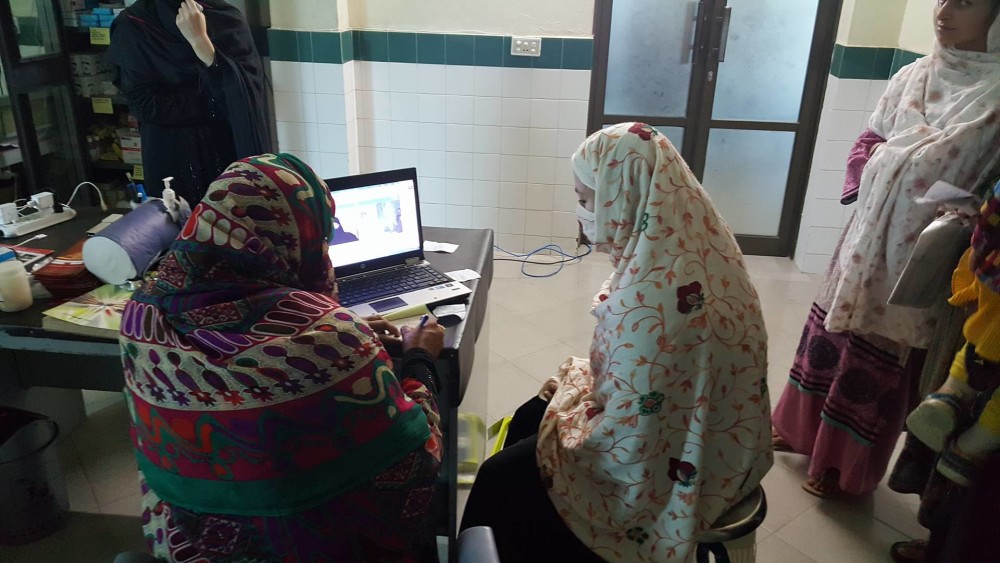By JoAnne Viviano
The Columbus Dispatch, Ohio
WWR Article Summary (tl;dr) Q&A with Nimet Alpay, a member of the mathematics faculty at Franklin University on what it is like to be a Muslim woman in Columbus, Ohio.
The Columbus Dispatch, Ohio
Nimet Alpay, a native of Ankara, Turkey, moved to the United States about 20 years ago, on a scholarship to earn her master’s and doctorate degrees in mathematics at Michigan State University. The 43-year-old Worthington resident who says she “always was raised to be a strong, independent woman,” is now a U.S. citizen and lead faculty member of mathematics and statistics at Franklin University.
She is one of several Muslim women to be featured at Dispatch.com during the Islamic holy month of Ramadan, when Muslims fast during daylight hours and focus more fervently on their faith.
She and her husband, Zafer, and their children ages 17, 12 and 8 worship at both the Turkish American Society of Ohio on the Northwest Side and at Noor Islamic Community Center in Hilliard.
Her answers to some questions from The Dispatch:
Q: What has living in American taught you about Islam?
A: I didn’t know much diversity before I came here, even within my own religion, even in my faith. When I came to Michigan State, there was a small Islamic center there, and we went there for prayers and for celebrations, and that’s when I realized, ‘Oh, my gosh. There’s whole, big diversity in my own religion.’ And I remember crying during the first Eid (holiday) prayer there, because people came from all different backgrounds. They’re all Muslims, but with different clothing, different colors, different backgrounds, different looks. But we’re all together celebrating the same holiday, bowing in front of the same God. And that was such a powerful moment for me.
Here in Columbus, the diversity is also a very big asset, I believe. So we have very different groups of people here working together and helping each other, supporting each other.
Q: What is it like to be a Muslim woman in Columbus?
A: It’s challenging. … We as practicing Muslim women with the hijab (head scarf), people see us as the face of Islam. So we have more responsibility, more load on our shoulders to represent our faith. I think that’s why it’s very important for Muslim women to be out there, to engage in the community, to be with others and to take charge in community events, in kids’ schools, to be an example.
Q: How do you feel about that?
A: We cannot play the victims here. We should be strong. We should be brave. We should be outgoing. We should take charge of our own life, our own faith.
Yes, there is ISIS and other terrorist groups out there claiming they’re doing those things in the name of our own religion, but we should reject that. We should openly reject all that. … It’s my responsibility to show that it’s not like that, that they’re wrong.
Q: Why do you wear the head scarf?
A: So, 9/11 shook me to my core, really. … I had to question a lot of things. I had to question my own religion, why they did this, is my religion really promoting this, what are they trying to gain from this? I read a lot, I listened a lot, I questioned and contemplated a lot. And during that time, I realized that it’s not the religion that promotes that. It’s not Islam that promotes that. Those are terrorists.
I came to realize the beauty of my own religion. And as I read more, I realized that it’s God’s order to wear the head scarf for women. … There are some women who choose not to do that, and it’s up to them, and it was up to me to decide to wear a head scarf. And, at first, it was weird for me and the people around me, for friends and family and neighbors. But I must tell you, I felt much more confident in myself after I started wearing the head scarf … I felt much more confident, stronger, empowered.
Q: What does Islam mean to you?
A: We have to believe in one God, and that God created entire universe in his own image. That God created entire universe and everything in it with love and compassion. So when you believe that, you cannot be hateful to anything, to people, to animals, to the environment, to anything, because everything is from God.
We believe that not just prophet Mohamed, but other prophets are also holy and prophets of God — Jesus, Moses, Adam, Noah. We honor and we respect and we love all of them. So when you also believe in this, how can you be hateful to people who follow Jesus, for example, or to Moses, for example? They’re all brothers or sisters in faith, in humanity, in creation.
Q: Do you feel that you or anyone in your family has experienced discrimination because of your faith?
A: No, the experiences I have in central Ohio or even in Michigan were so positive. People are so welcoming and helpful and supporting.
Q: What would you like to say to central Ohio Muslims?
A: I encourage them to go out there and to represent our faith and our religion freely.
We as Muslims, first, denounce and reject all violence and all terrorism that’s being done in the name of our religion — openly we should do that. And not only that, we should promote the human rights and universal human values, like liberty and dignity and freedom and life.














































































































































































































































































































































































